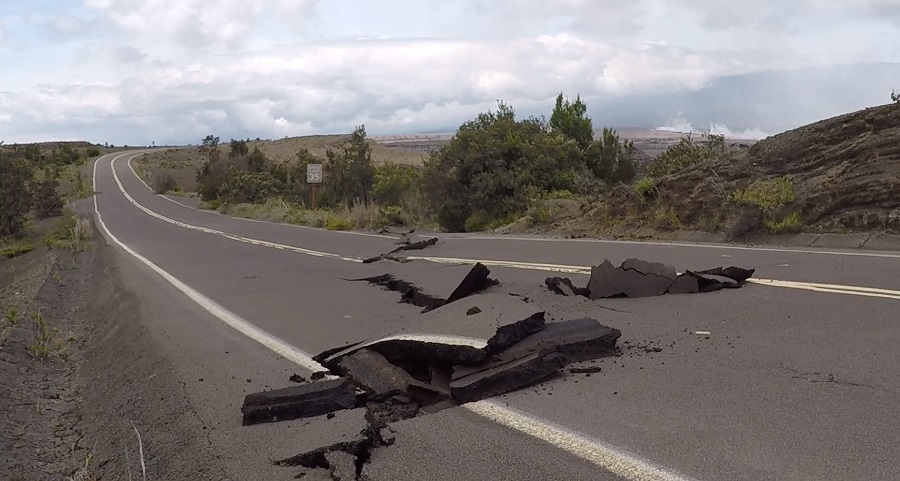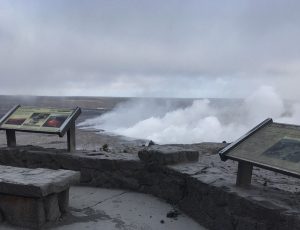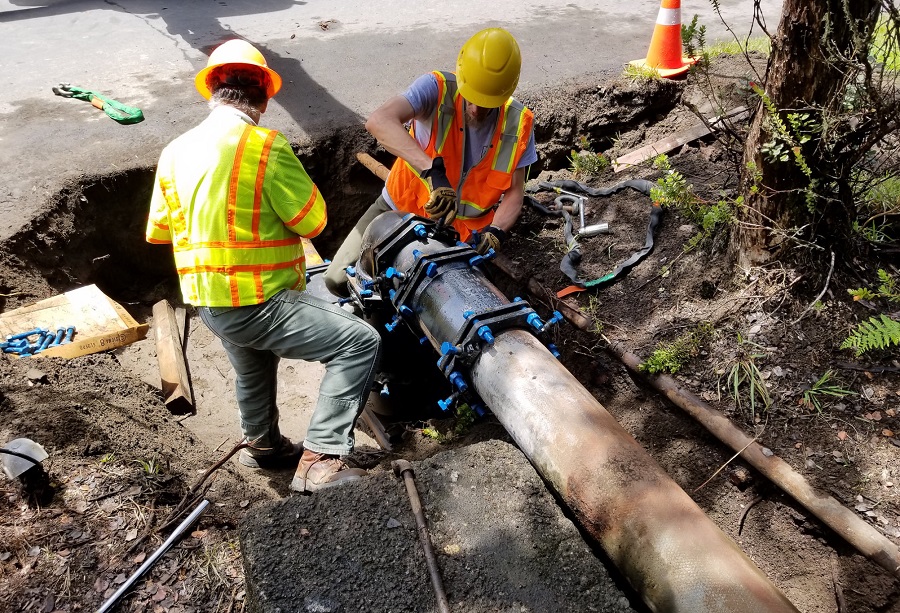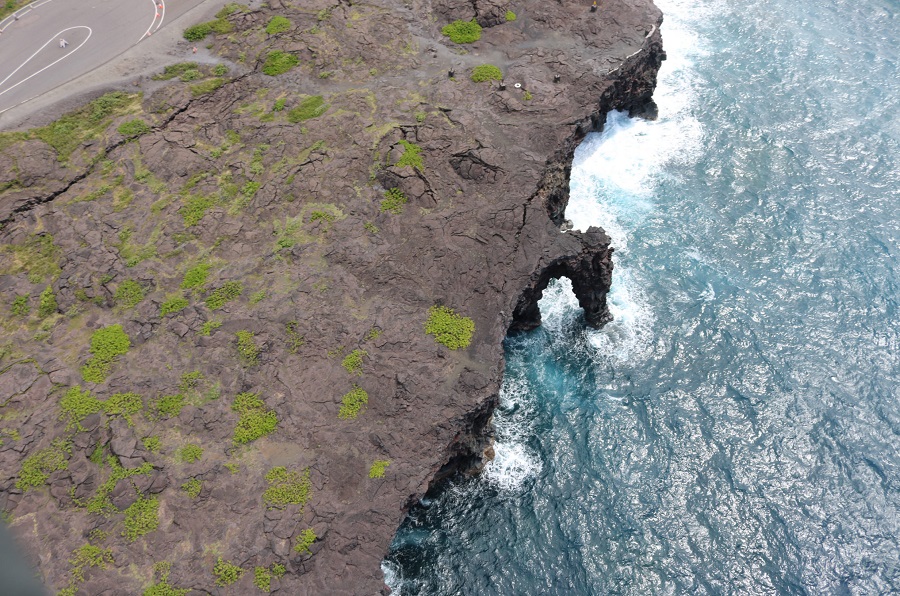

The Hawaii Volcanoes National Park has been closed to visitors for more than three weeks now, a preventative measure put in place to protect guests from increased seismic activity at the park . Located on Hawaii’s Big Island, the 500+ square mile park hosts visitors around the world that enjoy scenic volcanic overlooks, numerous walking and hiking trails, and even an underground lava tube that can be easily explored. It appears that in the time since the park was closed, significant damage has impacted the park facilities visited by millions of guests over the years. With more volcanic and seismic activity expected in coming days or longer, the park will remain closed indefinitely.

“We understand and commiserate with our community and visitors about the prolonged closure, but we cannot provide safe access to the Kīlauea section of the park as long as these very unpredictable dangers threaten the safety of park staff and visitors,” said Park Superintendent Cindy Orlando. “Unlike lava, which you can see coming and avoid, we cannot see or predict earthquakes, nor can we foresee a summit explosion, but both threats continue,” she said.
In a statement released to the media today by Jessica Ferracane, Public Affairs Specialist with the park, “Layers of acidic volcanic ash coat picnic tables, roads and overlooks, and ash has caused poor visibility on Highway 11, creating dangerous driving conditions at times. Hundreds of shallow earthquakes beneath the summit of Kīlauea have damaged at least three park buildings, fractured park roads, and snapped water lines.”
The Kilauea area has been rocked by a record number of earthquakes. In a media briefing on June 3, the USGS said that more than 500 earthquakes were recorded in a 24 hour period leading up to that briefing. Hours after that media briefing, a fresh magnitude 5.5 quake shook the area at 3:50pm, cracking the overlook deck at Jaggar Museum. According to the USGS, more than 4,700 earthquakes have rattled Hawaii’s Big Island over the last month, including a potent 6.9 quake at the start of this eruptive event in May.
“Unfortunately, there’s no way to tell when we can reopen the Kīlauea section of Hawai‘i Volcanoes National Park. We’ll only reopen when it is safe to do so, and we will need time to assess, make repairs and clean up,” Superintendent Orlando said. “In the meantime, we ask for your understanding and support.”

The full scope of damage throughout the park is not yet fully known. According to park officials, newly formed earth cracks observed near Hōlei Sea Arch on a recent overflight concern them. Crater Rim Drive and Hilina Pali Road near Kulanaokuaiki Campground are impassable in places. While it is too soon to understand the financial cost of the damages in the park, it is also too soon to understand the overall financial impact a prolonged park closure has on Hawaii’s tourism industry. The park is big business for the island’s bustling tourism industry: according to National Park Service report released in April, 2,016,702 visitors came to Hawaii Volcanoes National Park in 2017 and spent $166 million in communities near the park. That spending supported 2,020 jobs in the local area, and had a cumulative benefit to the local economy of $222,394,900. While the park closure is impacting the area financially, the damage within the park from Kilauea volcano has not lead to any injuries.
While the primary park known for its volcanic landscape has been closed since May 11, the park’s Kahuku Unit, located an hour south of the main entrance, is open for limited hours for visitors. Located on Highway 11 near mile marker 70.5., the Kahuku Unit is open Wednesday through Sunday, from 9am to 3pm. Depending on activity at the Kilauea summit and prevailing winds, the park could be impacted by poor air quality such as vog and/or volcanic ash at times. Park rangers are also serving visitors and the community at Mokupāpapa Discovery Center in downtown Hilo Tuesday through Saturday, 9am to 4pm. Starting today, rangers will also be on-site at the Volcano Art Center’s Niaulani Campus in Volcano Village from 9am to 4pm. Rangers are also at the Hilo Airport most days, and at the Hilton Doubletree Naniloa Hotel Sundays and Mondays to answer questions about the park and current eruption conditions.